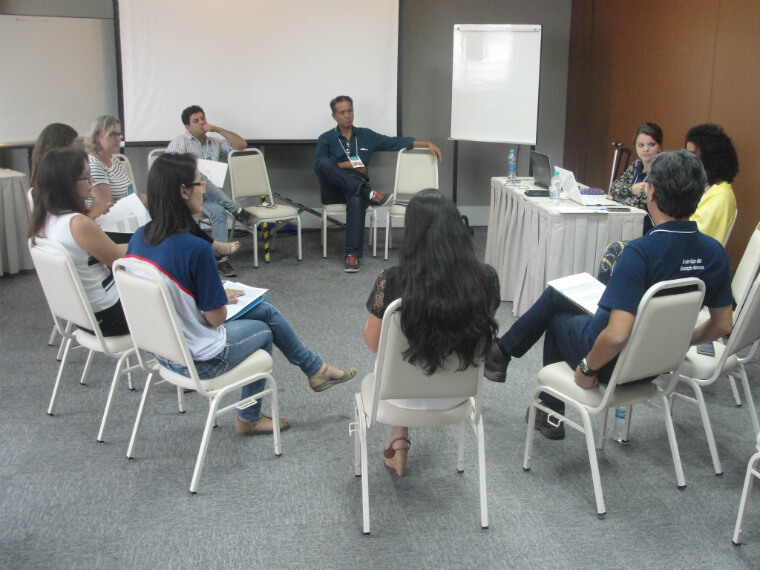The objective was to conduct a qualified technical hearing with the municipal managers that promote social assistance actions and psychosocial assistance
Between March and April 2017, social managers from different municipalities impacted by the collapse of the Fundão dam, participated in workshops on social protection. In total, 30 municipalities sent representatives to the five meetings held in towns chosen as hosts – Mariana, Ipatinga and Governador Valadares, in Minas Gerais; and Colatina and Linhares, in Espirito Santo.
The objective was to conduct a qualified technical hearing with the municipal managers that organize social assistance actions and psychosocial and cultural assistance for the impacted families, besides supporting the scope of the Social Protection activities of the Renova Foundation, within the framework of the Transaction and Conduct Adjustment Term (TTAC). The meetings were conducted by the Technical Board of Social Organization and Emergency Aid (CTOS), the Civil Office of the Presidency of the Republic and the Ministry of Social Agrarian Development (MDSA).

Social managers participate in workshops to survey the impacts of the Fundão dam collapse on the communities. | Photo: HP Consulting
The methodology used, made it possible to record information about the impacts perceived by the municipal representatives, the effects on Social Assistance, Health and other public policies, as well as possible referrals and responsible parties for the restoration or mitigating actions.
Some of the key issues raised were:
• The need to re-establish symbolic and cultural ties with the territory,
• The importance of the recovery of water quality for the reestablishment and reorganization of the affected communities,
• The need for specific dialogue and social assistance strategies for indigenous and Quilombola communities.
